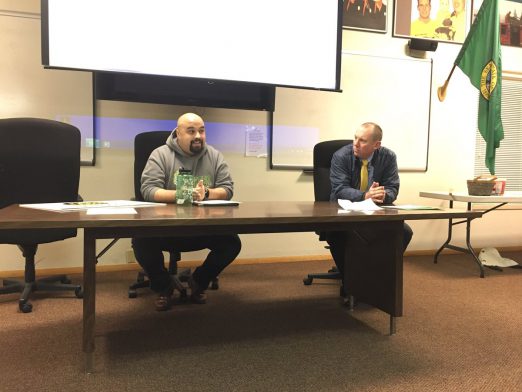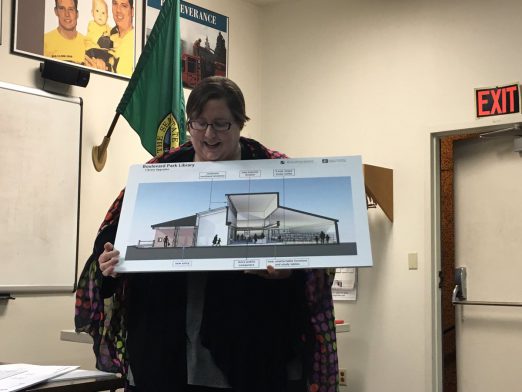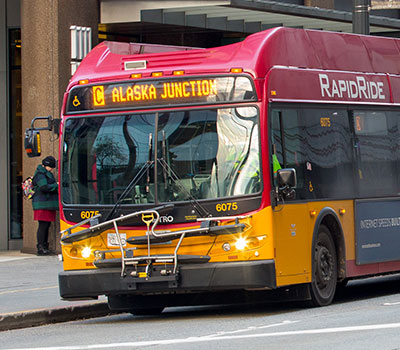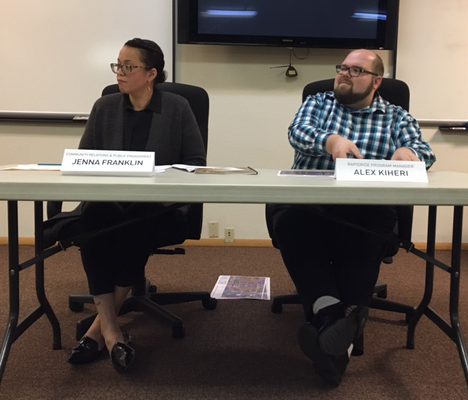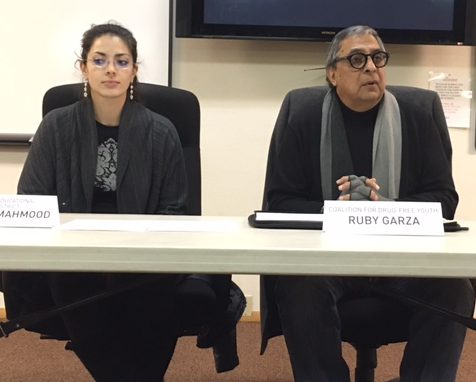(White Center Now/West Seattle Blog video)
Voting for the general election starts in less than 2 weeks. The most hotly contested race on local ballots is for 34th District State Senator, with Joe Nguyen and Shannon Braddock emerging from an 11-candidate primary. The latest major appearance by both was at this past Thursday night’s North Highline Unincorporated Area Council meeting; we recorded it on video and you can watch the unedited hour-and-a-half-long forum above. We’ve also noted key points in text below – not full transcriptions, just excerpted points, but perhaps of interest if you don’t have time to watch the video or go see one of their upcoming appearances (listed below):
INTRODUCTIONS: Each got 5 introductory minutes. Braddock was born in Texas but her family moved to Bellingham when she was a toddler and she was there through college; after living in some other places, she moved to West Seattle 19 years ago. She’s a mom of three, 11-year-old daughter, 14-year-old son, 19-year-old son.
In the context of mentioning the day her younger son came home talking about an active-shooter drill, she mentioned that she’s for Initiative 1639 and even if it doesn’t pass, she said she would sponsor bills to be sure “each part of it” move forward. She also recapped her work history for County Executive Dow Constantine and County Councilmember Joe McDermott.
Nguyen talked about growing up in White Center – born in what’s now Seola Gardens but was then Park Lake – the son of refugees from Vietnam. He said they struggled in those early years but the community gave to his family, including building a ramp for his dad after a crash left him a quadriplegic. His family lived in Burien for a while and now Nguyen lives in West Seattle, a dad of two kids, 1 and 3. He talked about his career in technology strategy and job-training resources.
First question: NHUAC president Liz Giba showed data about the public-health discrepancies in the area, and North Highline residents having a life expectancy as low as 76 years old, six years below the lowest life expectancy for someone in West Seattle and asked the candidates if they believed it was an accident.
Nguyen said no, it is reality, and he experienced it growing up. “Certain parts” of the area need more attention.
Braddock also said no, it’s not an accident, and talked about the county using an “equity lens” that she believes the state needs to use as well.
Nguyen said more community representation in the decisionmaking process is important, especially with regards to cultural competence.
Second question, from NHUAC vice president Barbara Dobkin, was about low-income housing and whether it’s OK that more is being built in North Highline because land is cheap.
Braddock said no but also spoke about the challenge of displacement and how her campaigning brought her to many doorsteps where people said they would have to move. She also said that affordable-housing needs should be considered community by community, rather than one size fits all.
Nguyen said that land’s value needs to be considered as more than a price, but also what that land means to the community. He also espoused a holistic look at affordable housing – are services available? And he mentioned the importance of tax reform as seniors and others deal with rising property taxes.
Dobkin followed up by asking their opinions about the siting of affordable housing. Nguyen said it should be “all over the place.” Braddock said she supports “inclusionary zoning” as well as the Block Project, which seeks to site tiny houses in people’s yards as a “community-inclusive way to provide housing for homeless” people.
Next question dealt with gang violence, and recent Burien murders related to it. Is it related to poverty and a lack of opportunities? Yes, said Braddock, and the community needs to work closely with young people to fix that. Giving youth the option to learn about trades can help. “We can’t let up – we start to do this work … and then we take our foot off the pedal and we think the problem is solved,” Braddock said. Nguyen mentioned recently being at a Burien City Council meeting and noted that more money was being invested in policing than in youths’ futures. “We need to make sure we’re putting the emphasis on prevention,” he said.
Then a frequent NHUAC discussion topic, the state-allowed concentration of marijuana stores in North Highline and the robberies that have happened at most of those stores. “Concentrating in one area is not appropriate,” Nguyen said. He suggested the problem was again a lack of representation and an absence of leaders “pushing back.” Braddock said that while marijuana is legal because of an initiative, it was “clumsily” implemented. Both agreed that the allocation of tax revenues needs to be revisited to focus on communities’ needs.
Next, homelessness and how to help unsheltered people. Braddock noted that the crisis “has been building for many, many years” and told an anecdote about someone sleeping in her carport a decade ago while visiting his mother at a nearby care center. She said she supports 24/7 shelters – “navigation center” type shelters – and looking at “more surplus lands” for affordable housing/shelters. She says WSDOT is exempt from surplus-land review and would like to see that change. She also mentioned funding generated by a state document-recording fee and “protecting” that; Nguyen noted that it’s not generating what it used to and said it should be brought back to its former level. He also suggested tax incentives/credits for property owners who need it to fix up their property – provided they keep a certain level of affordability for tenants.
If they were elected, what would they do the rest of the time (given that legislator is a part-time job)? Braddock said she couldn’t keep her current job as it’s too demanding so she’d have to get something else. Nguyen said he’d be able to keep his job because his employer Microsoft had a paid-time-off program that would cover his legislative time.
An attendee question next: Candidates talk about supporting small business but don’t follow through, so does either candidate have small-business experience and what would they do to support such businesses? Nguyen said his family had run a billiard hall in White Center at one point and he saw firsthand the taxes that small business have to deal with; he said he’d like to abolish B&O taxes for small- and medium-sized businesses. He also observed that other costs, including health care, can be onerous for small-business owners too. And he spoke of supporting a friend who was setting up a business and needed help with other important things such as setting up a website. Braddock said that her family had some small businesses including a restaurant that lasted about a year, and she saw “the energy and the work” that went into running businesses. She suggested that the 34th District could have for example a “small business advisory committee” surfacing issues to her.
Another attendee question involved the difficulty of families being able to afford participating in sports and other programs. Braddock voiced support for helping with that and ensuring that families know about grants that are available. Nguyen mentioned his past involvement as a youth served by the local Boys and Girls Club and said he agreed that more funding was needed for youth programs.
Next attendee question: The Public Works Trust Fund, loans from the state to local agencies for local projects, and concerns about those loans’ availability. Nguyen said he’s not familiar with it but promised that he would fight for local needs. Braddock talked about coalition-building to evangelize support for that sort of need.
And another: A relatively new North Highline resident talked about property-tax breaks for seniors and wanting the eligibility level to expand. Braddock said that was another example of why tax reform is so important. She also said greater awareness is needed for already-available tax breaks. Nguyen also said a more-equitable tax structure – including a capital-gains tax – is important.
Asked about campaign contributions, Braddock defended accepting $750 from Coca-Cola and said she is not supporting the anti-tax Initiative 1634 that soda companies are funding. She said she can’t afford to self-finance her campaign. Nguyen said he can’t either but doesn’t take “corporate PAC money.”
Another question was from an attendee who said that anecdotally she’s noticing more teenage pregnancy and wondered about public-health services’ availabilities. Both candidates agreed the situation should be examined.
Next person asked about rent control. Braddock said “traditional” rent control didn’t seem to have worked but she would support lifting the ban so that local governments could explore “opportunities for innovation” in keeping rents down. Nguyen said he’s “for rent control” and supports strengthening tenants’ rights.
An attendee asked about the Washington Hospitality Association and its opposition to the $15 minimum wage. Nguyen said he “took a meeting” with the organization but was not looking for their money or endorsement. Both said they support the $15 minimum wage.
Next: Their positions on North Highline annexation – when, who, how to get there? Nguyen said residents should decide ‘where they go and how that looks.’ He said he personally favors Seattle but acknowledges it could lead to faster gentrification and displacement. “My family still lives here and they’re going to have a hard time staying here if prices go up any (further).” Braddock also said it’s up to the community and the county needs to do the best it can with the services it provides. She also noted that Seattle is the only city potentially pursuing annexation right now.
Asked about veterans’ issues, both mentioned veterans in their families and said it’s vital to ensure veterans can get the care they need.
An attendee who said she had worked in sexual-violence prevention asked what the candidates would do in that area. Braddock mentioned her proposal for consent education becoming part of health education in schools. Nguyen said he agreed and also wanted to strengthen laws and procedures related to assaults.

WHAT’S NEXT: Upcoming forums announced for both candidates include:
-Tuesday (October 9), Admiral Neighborhood Association (6:30 pm, Sanctuary at Admiral, 42nd/Lander)
-October 17th, Delridge Neighborhoods District Council (7 pm, location TBA)
-October 18th, West Seattle Chamber of Commerce (6:30 pm, DAV Hall, 4857 Delridge Way SW)
VOTING: November 6th is Election Day – get your ballot into a drop box by 8 pm or get it to the US Postal Service (remember, stamps no longer needed!) in plenty of time to ensure it’s postmarked by that date.


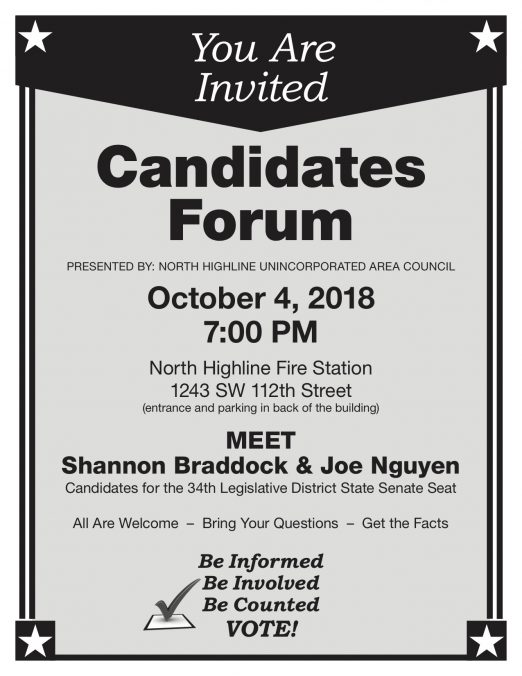
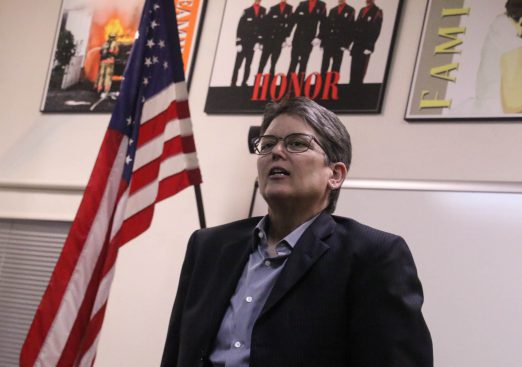
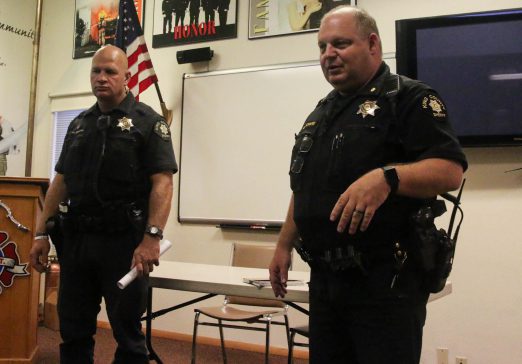
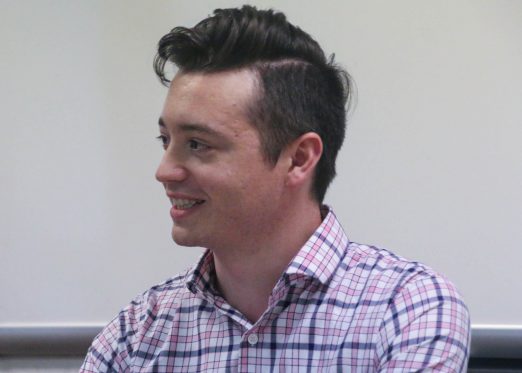
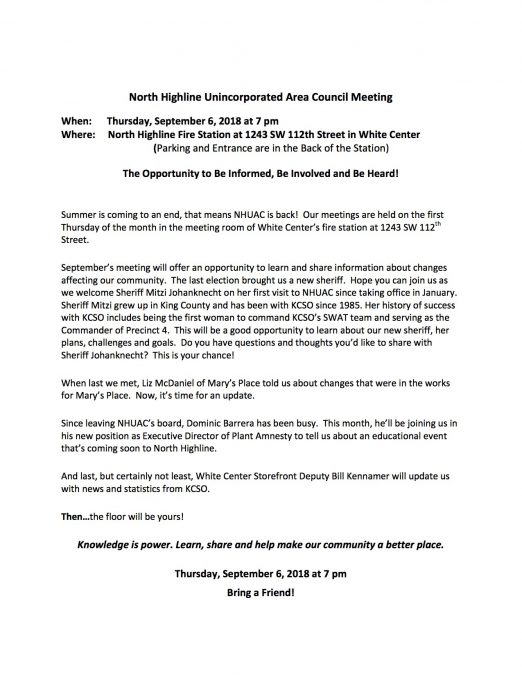
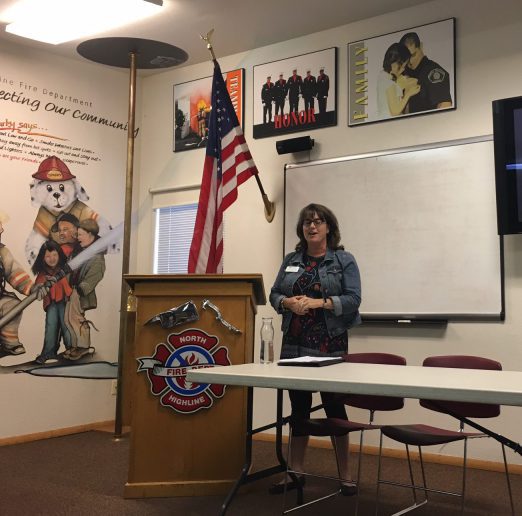
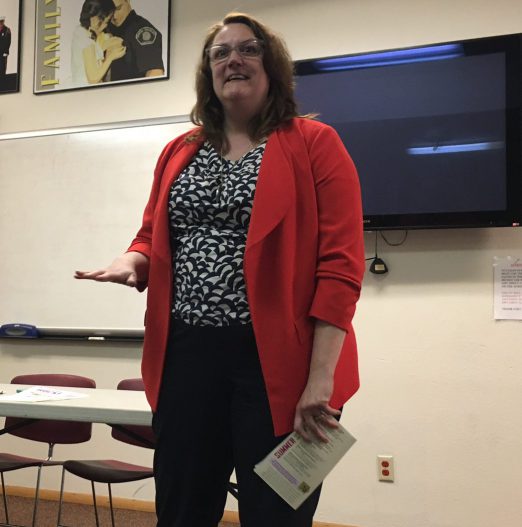
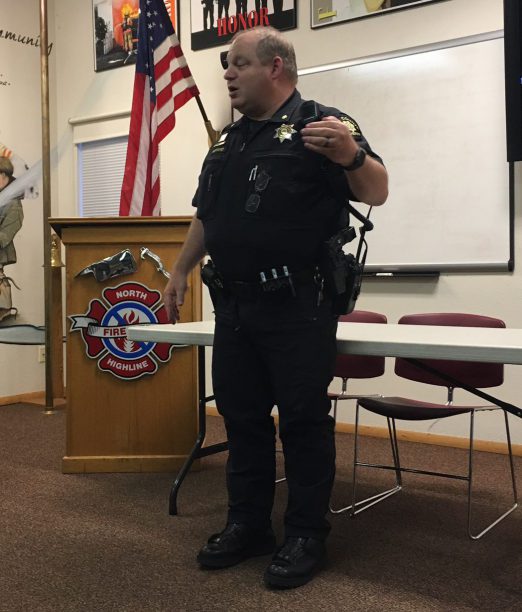
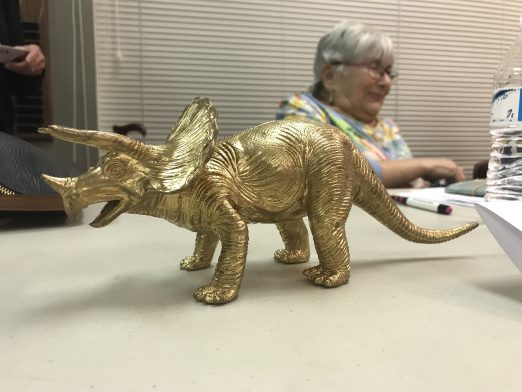
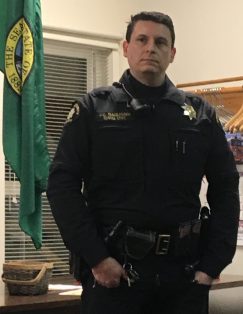 Det. Gagliardi addressed about 30 people Thursday night (March 1st) at the monthly meeting of the
Det. Gagliardi addressed about 30 people Thursday night (March 1st) at the monthly meeting of the 